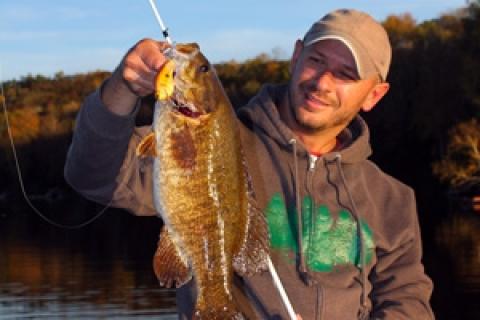
 There are a myriad of places to find fish on a lake. An overlooked spot — that can yield impressive results — are transition zones. Here's the rundown on these structure magnets.
There are a myriad of places to find fish on a lake. An overlooked spot — that can yield impressive results — are transition zones. Here's the rundown on these structure magnets.
What They Are
Transition zones, simply put, are two different types of structure that butt up against each other. These can be the same structure but a different variety, or two completely different types. For instance, cabbage and coontail vegetation or rock and lily pads. The key concept is finding two types of structure that transition into each other.
Why They Work
Transition zones work for a variety of reasons. For one, they offer varying forms of cover and concealment — oftentimes one that is more attractive than the other. They also provide a larger range of prey to feed on, as different forms of structure will support various baitfish, crustaceans and plankton. Lastly, they are able to offer varying degrees of temperature change — especially when thick vegetation is concerned.
How to Find Them
Depending on the type of lake you fish, finding transition zones can be as easy as standing on the bow of the boat and scanning the water. This is ideal for clear water situations. If faced with dingy or deep water, relying on your electronics is the only way to go. I find my Humminbird "DownScan" is useful for locating and picking apart these fish magnets. The same goes for "SideScan." Once found, marking it with your GPS will allow you to easily find and fish it throughout the course of the season.
How to Fish Them
Work horizontal running baits if you want to cover both structure points efficiently. For instance, a spinnerbait tossed over a zone of cabbage weed and rock is ideal for picking off largemouth. Picking apart where the two structures meet, best done with a vertical presentation, allows you to cover all of the bases effectively.
Zones to Key in On
- Rock and Weed
- Rock and Sand
- Rock and Wood
- Boulders and Pebbles
- Weed and Wood
- Weed and Weed
- Weed and Sand
- Wood and Sand
- 3325 views

